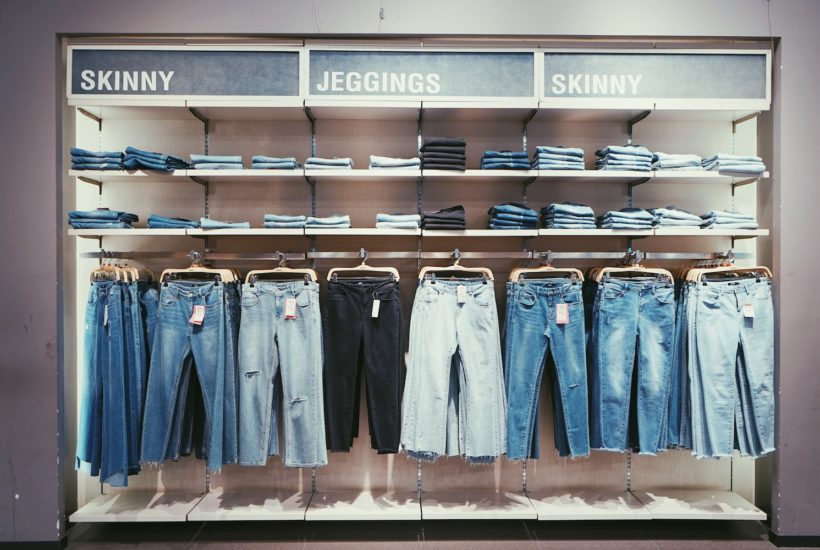Business
The Spanish fashion industry is under threat from the Coronavirus
The global fashion industry is facing real problems as more and more companies are losing money because of the coronavirus outbreak. Retailers are worried that their new collections may be delayed by months. The president of Acotex, Eduardo Zamácola, is happy because their spring-summer collection came in December, but no one knows what is going to be with the autumn and winter collections.

Better safe than sorry. Spanish fashion companies are preparing to mitigate the impact of the coronavirus. This is a task that focuses mainly on the suppliers and factories that Spanish brands work with in China.
Sources from the textile sector are concerned about the uncertainty surrounding the Chinese manufacturing industry. Currently many manufacturing centers are operating at less than 10% capacity with no end in site.
For Eduardo Zamácola, president of the textile employers’ association, Acotex, the spring-summer collection “is saved,” as it came out in December and is already in the stores. “There is no risk of shortage, at least for the time being, as their fears are centred on the autumn and winter collections, from which the raw materials – buttons, zippers or threads – should already be being manufactured.”
That is why brands have started to implement contingency plans aimed at preventing damage to their production. In particular, orders from China are beginning to shift to countries such as Burma and Thailand. With this, companies hope to save their new garments for the time being. “The problem will come as the virus continues to spread,” explained industry sources.
Latest financial, market & business news, economic news, and analysis from the Born2Invest mobile app. Stay tuned!
Margin of manoeuvre
One of the big Spanish fashion groups, Tendam (Cortefiel, Springfield, Women’secret, and Pedro del Hierro) has more than 100 suppliers in China alone; around 30% of the garments bought by the group’s brands are produced in the Asian countries.
However, the company believes they have the resources to weather the storm. “We have a production network in more than 30 countries, which allows us enough room for manoeuvre if the situation should continue,” sourced from Tendam tell Vozpópuli.
Although the group insists that it is difficult to “predict exactly” when production delays will start, they estimate that if the current problems persist, supply will be impacted towards the beginning of the summer.
In order to avoid this, Tendam has begun to divert some manufacturing to other countries while assessing whether it might make sense to evaluate the shift from sea to air transport if the accumulated delays are large and lengthy.
News from Inditex
With seven stores in the Wuhan region and part of its production in the country, Inditex has not yet made public what measures it is taking in the face of the coronavirus crisis and how this may affect its production.
This same Monday, February 24th, the company led by Pablo Isla was one of the biggest punished (accumulated more than 6% drop at market closure) after the alert for the disease in Italy.
The first blow for Inditex in the stock market as a result of the coronavirus crisis. The Spanish company has closed the day with a fall of 6.2% on the trading floor, to $32.12 (€29.62) per share. A fall that is, therefore, above the average of the Ibex 35, which has remained at 4% and which has caused it to lose $6.7 million (€6,6 million) of its stock price on Monday, February 24th.
The case of Zara’s owner is noteworthy since the company has not yet provided information on what protocol it is activating on its stores in China or on its suppliers in the Asian country.
__
(Featured image by lan deng via Unsplash)
DISCLAIMER: This article was written by a third party contributor and does not reflect the opinion of Born2Invest, its management, staff or its associates. Please review our disclaimer for more information.
This article may include forward-looking statements. These forward-looking statements generally are identified by the words “believe,” “project,” “estimate,” “become,” “plan,” “will,” and similar expressions. These forward-looking statements involve known and unknown risks as well as uncertainties, including those discussed in the following cautionary statements and elsewhere in this article and on this site. Although the Company may believe that its expectations are based on reasonable assumptions, the actual results that the Company may achieve may differ materially from any forward-looking statements, which reflect the opinions of the management of the Company only as of the date hereof. Additionally, please make sure to read these important disclosures.
First published in vozpopuli, a third-party contributor translated and adapted the article from the original. In case of discrepancy, the original will prevail.
Although we made reasonable efforts to provide accurate translations, some parts may be incorrect. Born2Invest assumes no responsibility for errors, omissions or ambiguities in the translations provided on this website. Any person or entity relying on translated content does so at their own risk. Born2Invest is not responsible for losses caused by such reliance on the accuracy or reliability of translated information. If you wish to report an error or inaccuracy in the translation, we encourage you to contact us.

-

 Business2 weeks ago
Business2 weeks agoTopRanked.io Weekly Affiliate Digest: What’s Hot in Affiliate Marketing [Best Technology Affiliate Programs]
-

 Business6 days ago
Business6 days ago2.5 Billion People Watch Quiz Shows Every Day. Masters of Trivia (MOT) Is Letting Them Compete
-

 Crypto2 weeks ago
Crypto2 weeks agoBitcoin Steady Near $68K as ETF Outflows and Institutional Moves Shape Crypto Markets
-

 Crypto1 day ago
Crypto1 day agoMiddle East Tensions Shake Crypto as Bitcoin and Ethereum Slip

























